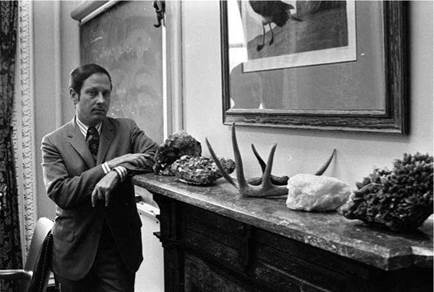Richard Nixon’s "Pet Idea"
That suggestion set off a brief and ultimately unsuccessful attempt to add an attention-getting angle to the space statement. The idea was attractive to White House speechwriters; lead writer James Keogh “was enthusiastic about casting the message as a call for more international cooperation,” since “if this were the central theme, the message would take on a novel and exciting quality which the present draft is lacking.”17
Early Interest in Increased International Cooperation
There was substantial background to White House interest in international space cooperation. As the Nixon administration entered office in January 1969, Arthur Burns had identified three themes from the space transition task force deserving of detailed attention. Two of these themes were a need for an overall review of the space program and the possibility of significant reductions in launch costs. These items had been combined in the decision to create the Space Task Group. The third theme was increasing the amount of and broadening the character of international cooperation in space. President Nixon had asked Secretary of State William Rogers to assess ways of achieving these objectives. Rogers responded to the president on March 14, 1969, saying that “we are interested in space cooperation, not only for its intrinsic scientific merits, but also to further specific foreign policy objectives.” Rogers identified “major new opportunities for international cooperation.” These included “foreign participation in the U. S. manned flight program, including foreign scientist-astronauts.” He told the president that he was examining the benefits of Nixon making at the successful climax of the first lunar landing mission “a major public statement on the international values of our ongoing space program.”18
Such a statement was not issued. Although he said nothing specific about increased international cooperation at the end of the Apollo 11 mission, President Nixon did address space cooperation as he spoke before the General Assembly of the United Nations on September 18, 1969. Nixon told delegates from around the world “I feel it is only right that we should share both the adventures and the benefits of space.” He said that the United States would take “positive, concrete steps. . . toward internationalizing man’s epic venture into space—an adventure that belongs not to one nation but to all mankind, and one that should be marked not by rivalry but by the same spirit of fraternal cooperation that so long has been the hallmark of the international community of science.”19











